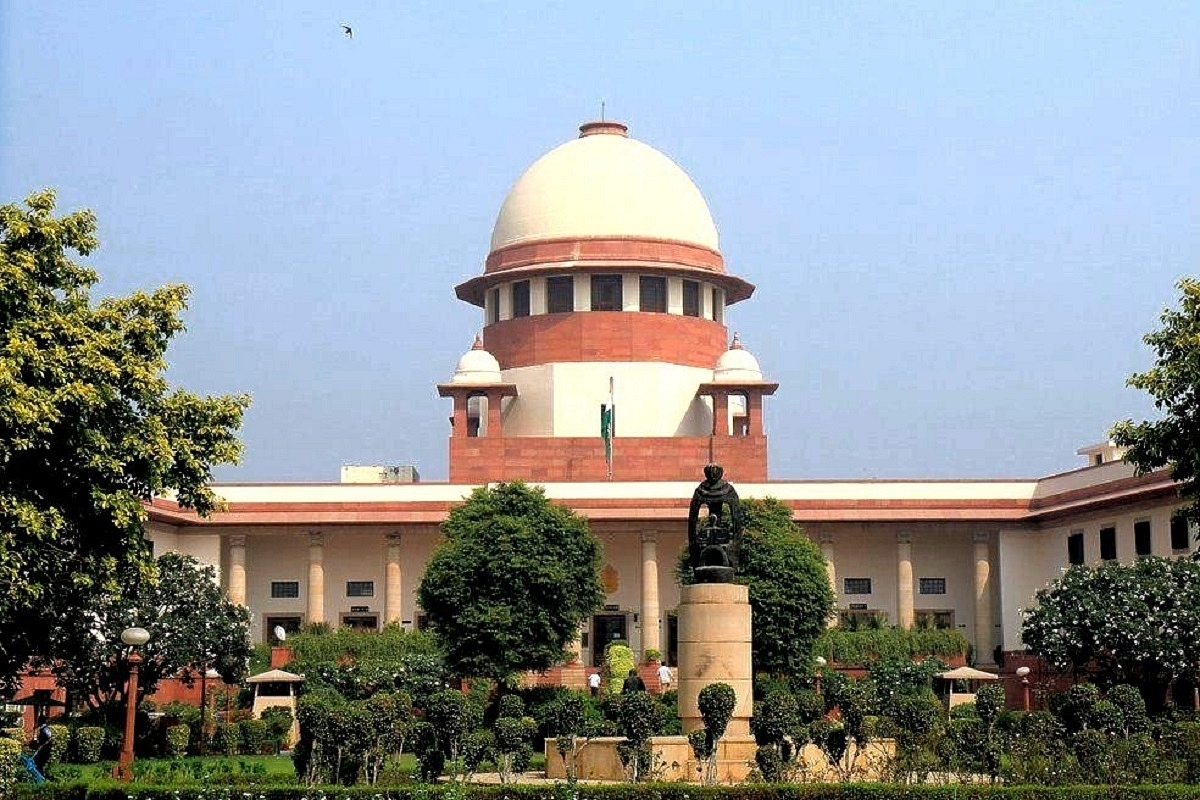Politics
Quota For 'Dalit' Muslims, Christians: SC Asks If Ranganath Commission Report Can Be Relied Upon, To Hear Pleas In July

The Supreme Court of India.
The Supreme Court on Wednesday (12 April) heard a batch of petitions seeking the extension of reservation benefits available to the Scheduled Caste community to Dalits who have converted to Christianity and Islam.
The apex court was hearing the pleas, including those which have alleged that the Constitution (Scheduled Castes) Order, 1950 is discriminatory and violative of Articles 14 (equality before law) and 15 (prohibition of discrimination on grounds of religion, race, caste, etc) of the Constitution as it discriminates against Scheduled Caste converts to religions other than Hinduism, Sikhism, and Buddhism.
The Constitution (Scheduled Castes) Order, 1950, as amended from time to time, says no person professing a religion other than Hinduism, Sikhism, and Buddhism shall be deemed to be a member of a Scheduled Caste (SC).
The Centre had constituted a three-member panel led by ex-CJI K G Balakrishnan to examine whether SC status could be accorded to those who claim to historically belong to the community but have converted to other religions.
The panel was formed after the Centre rejected the findings of the previous Justice Ranganath Mishra Commission on the same matter.
According to the government, the report was prepared without any field study or consultations.
The Rangnath Mishra Commission had recommended including Dalit Muslims and Dalit Christians in the Scheduled Caste list.
A Supreme Court bench comprising Justices Sanjay Kishan Kaul, Ahsanuddin Amanullah and Aravind Kumar while responding to ASG K M Nataraj, who was appearing for the Centre, on Wednesday said that the Ranganath commission report was not that “perfunctory”, and that the government was making very "generalised" statement on the report.
During the hearing on Wednesday, the Court also pondered on the issue of how much it can rely on the Ranganath Commission inquiry, which has not been accepted by the Union Government.
On additional solicitor general K M Nataraj's submissions that after rejection of the earlier report, the court should wait for empirical data collected by the new commission, the bench said, "Tomorrow there will be a different political dispensation which may say that the new report is not acceptable. How many committees would be appointed?”
The court said it would conclude the hearing in a time-bound manner and asked all the parties to file their brief written submission and make a common compilation for smooth hearing in the case in which both sides would get two days each to conclude the arguments.
The matter has been posted to 11th July, 2023 to ensure the synopsis, compilation and all other documents are filed by the parties.
Senior advocates appearing for the petitioners noted that the issue could be adjudicated by the court as enough material existed on the issue that showed Dalit Muslims and Dalit Christians are being treated as “untouchables” and discriminated against.
However, one of the parties opposing the pleas stated that legal recourse was available to these groups.
The Centre in an affidavit had informed the court that Christians and Muslims who had converted from the SC community could not be granted SC status, as there was no backwardness or oppression in their current religious communities, and claimed that the 1950 Constitution (Scheduled Castes) Order was legal and valid, and did not suffer from any unconstitutionality.
Support Swarajya's 50 Ground Reports Project & Sponsor A Story
Every general election Swarajya does a 50 ground reports project.
Aimed only at serious readers and those who appreciate the nuances of political undercurrents, the project provides a sense of India's electoral landscape. As you know, these reports are produced after considerable investment of travel, time and effort on the ground.
This time too we've kicked off the project in style and have covered over 30 constituencies already. If you're someone who appreciates such work and have enjoyed our coverage please consider sponsoring a ground report for just Rs 2999 to Rs 19,999 - it goes a long way in helping us produce more quality reportage.
You can also back this project by becoming a subscriber for as little as Rs 999 - so do click on this links and choose a plan that suits you and back us.
Click below to contribute.
Latest